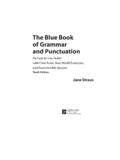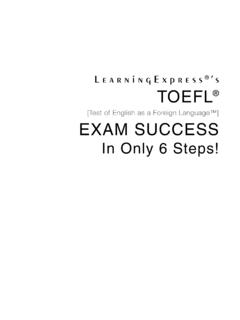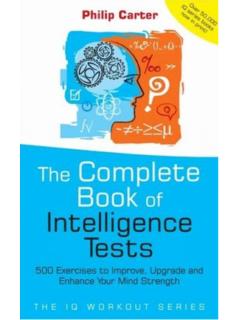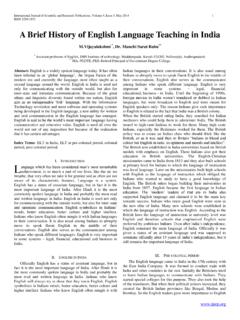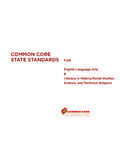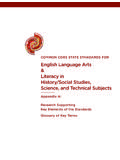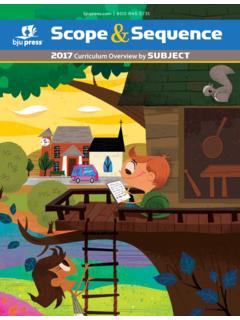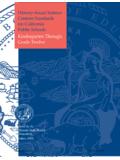Transcription of A History of English Literature - ELEKTRON …
1 A History of English Literature Robert Huntington Fletcher A History of English Literature Table of Contents A History of English Robert Huntington PRELIMINARY. HOW TO STUDY AND JUDGE A TABULAR VIEW OF English REFERENCE CHAPTER I. PERIOD I. THE BRITONS AND THE ANGLO SAXONS. TO A. D. CHAPTER II. PERIOD II. THE NORMAN FRENCH PERIOD. 1066 TO ABOUT CHAPTER III. PERIOD III. THE END OF THE MIDDLE AGES. ABOUT 1350 TO ABOUT. CHAPTER IV. THE MEDIEVAL CHAPTER V. PERIOD IV. THE SIXTEENTH CENTURY. THE RENAISSANCE AND THE. REIGN OF CHAPTER VI. THE DRAMA FROM ABOUT 1550 TO CHAPTER VII. PERIOD V. THE SEVENTEENTH CENTURY, 1603 1660. PROSE AND. CHAPTER VIII. PERIOD VI. THE RESTORATION, 1660 CHAPTER IX.
2 PERIOD VII. THE EIGHTEENTH CENTURY. PSEUDO CLASSICISM AND. THE BEGINNINGS OF MODERN CHAPTER X. PERIOD VIII. THE ROMANTIC TRIUMPH, 1798 TO ABOUT CHAPTER XI. PERIOD IX. THE VICTORIAN PERIOD, ABOUT 1830 TO A LIST OF AVAILABLE EDITIONS FOR THE STUDY OF IMPORTANT ASSIGNMENTS FOR i A History of English Literature Robert Huntington Fletcher This page copyright 2002 Blackmask Online. PREFACE. PRELIMINARY. HOW TO STUDY AND JUDGE Literature . A TABULAR VIEW OF English Literature . REFERENCE BOOKS. CHAPTER I. PERIOD I. THE BRITONS AND THE ANGLO SAXONS. TO A. D. 1066. CHAPTER II. PERIOD II. THE NORMAN FRENCH PERIOD. 1066 TO ABOUT 1350. CHAPTER III. PERIOD III. THE END OF THE MIDDLE AGES.
3 ABOUT 1350 TO ABOUT 1500. CHAPTER IV. THE MEDIEVAL DRAMA. CHAPTER V. PERIOD IV. THE SIXTEENTH CENTURY. THE RENAISSANCE AND THE REIGN OF. ELIZABETH. CHAPTER VI. THE DRAMA FROM ABOUT 1550 TO 1642. CHAPTER VII. PERIOD V. THE SEVENTEENTH CENTURY, 1603 1660. PROSE AND POETRY. CHAPTER VIII. PERIOD VI. THE RESTORATION, 1660 1700. CHAPTER IX. PERIOD VII. THE EIGHTEENTH CENTURY. PSEUDO CLASSICISM AND THE. BEGINNINGS OF MODERN ROMANTICISM. CHAPTER X. PERIOD VIII. THE ROMANTIC TRIUMPH, 1798 TO ABOUT 1830. CHAPTER XI. PERIOD IX. THE VICTORIAN PERIOD, ABOUT 1830 TO 1901. A LIST OF AVAILABLE EDITIONS FOR THE STUDY OF IMPORTANT AUTHORS. ASSIGNMENTS FOR STUDY. Produced by Branko Collin, David Moynihan, Charles Franks and the Online Distributed Proofreading Team.
4 Special thanks to Branko Collin for putting up with an untraceable project manager. TO MY MOTHER TO WHOM I OWE A LIFETIME OF A MOTHER'S MOST SELF SACRIFICING. DEVOTION. PREFACE. This book aims to provide a general manual of English Literature for students in colleges and universities and others beyond the high school age. The first purposes of every such book must be to outline the development of the Literature with due regard to national life, and to give appreciative interpretation of the work of the most important authors. I have written the present volume because I have found no other that, to my mind, combines satisfactory accomplishment of these ends with a selection of authors sufficiently limited for clearness and with adequate accuracy and fulness of details, biographical and other.
5 A manual, it seems to me, should supply a systematic statement of the important facts, so that the greater part of the student's time, in class and without, may be left free for the study of the Literature itself. A History of English Literature 1. A History of English Literature I hope that the book may prove adaptable to various methods and conditions of work. Experience has suggested the brief introductory statement of main literary principles, too often taken for granted by teachers, with much resulting haziness in the student's mind. The list of assignments and questions at the end is intended, of course, to be freely treated. I hope that the list of available inexpensive editions of the chief authors may suggest a practical method of providing the material, especially for colleges which can provide enough copies for class use.
6 Poets, of course, may be satisfactorily read in volumes of, selections; but to me, at least, a book of brief extracts from twenty or a hundred prose authors is an absurdity. Perhaps I may venture to add that personally I find it advisable to pass hastily over the seventeenth and eighteenth centuries and so gain as much time as possible for the nineteenth. R. H. F. August, 1916. PRELIMINARY. HOW TO STUDY AND JUDGE Literature . TWO ASPECTS OF LITERARY STUDY. Such a study of Literature as that for which the present book is designed includes two purposes, contributing to a common end. In the first place (I), the student must gain some general knowledge of the conditions out of which English Literature has come into being, as a whole and during its successive periods, that is of the external facts of one sort or another without which it cannot be understood.
7 This means chiefly (1) tracing in a general way, from period to period, the social life of the nation, and (2) getting some acquaintance with the lives of the more important authors. The principal thing, however (II), is the direct study of the Literature itself. This study in turn should aim first at an understanding of the Literature as an expression of the authors' views of life and of their personalities and especially as a portrayal and interpretation of the life of their periods and of all life as they have seen it; it should aim further at an appreciation of each literary work as a product of Fine Art, appealing with peculiar power both to our minds and to our emotions, not least to the sense of Beauty and the whole higher nature.
8 In the present book, it should perhaps be added, the word Literature is generally interpreted in the strict sense, as including only writing of permanent significance and beauty. The outline discussion of literary qualities which follows is intended to help in the formation of intelligent and appreciative judgments. SUBSTANCE AND FORM. The most thoroughgoing of all distinctions in Literature , as in the other Fine Arts, is that between (1) Substance, the essential content and meaning of the work, and (2) Form, the manner in which it is expressed (including narrative structure, external style, in poetry verse form, and many related matters). This distinction should be kept in mind, but in what follows it will not be to our purpose to emphasize it.
9 GENERAL MATTERS. 1. First and always in considering any piece of Literature a student should ask himself the question already implied: Does it present a true portrayal of life of the permanent elements in all life and in human nature, of the life or thought of its own particular period, and (in most sorts of books) of the persons, real or imaginary, with whom it deals? If it properly accomplishes this main purpose, when the reader finishes it he should feel that his understanding of life and of people has been increased and broadened. But it should always be remembered that truth is quite as much a matter of general spirit and impression as of literal accuracy in details of fact.
10 The essential question is not, Is the presentation of life and character perfect in a photographic fashion? but Does it convey the underlying realities? 2. Other things being equal, the value of a book, and especially of an author's whole work, is proportional to its range, that is to the breadth and variety of the life and characters which it presents. 3. A student should not form his judgments merely from what is technically called the dogmatic point of view, but should try rather to adopt that of historical criticism. This means that he should take into account the limitations imposed on every author by the age in which he lived. PRELIMINARY. HOW TO STUDY AND JUDGE Literature 2.


